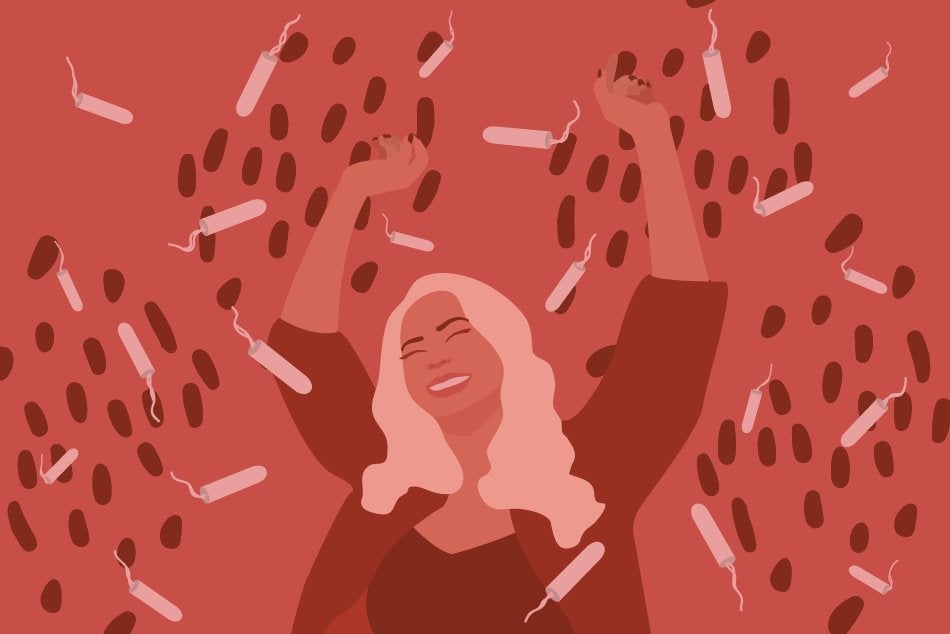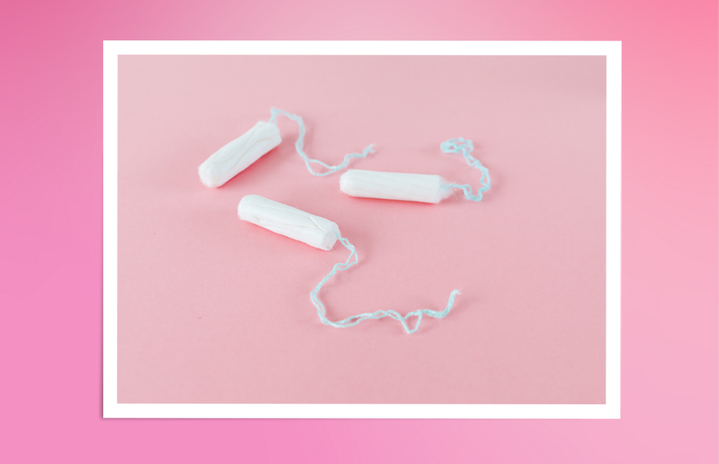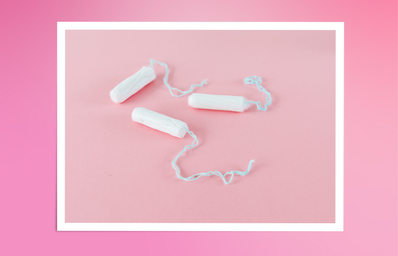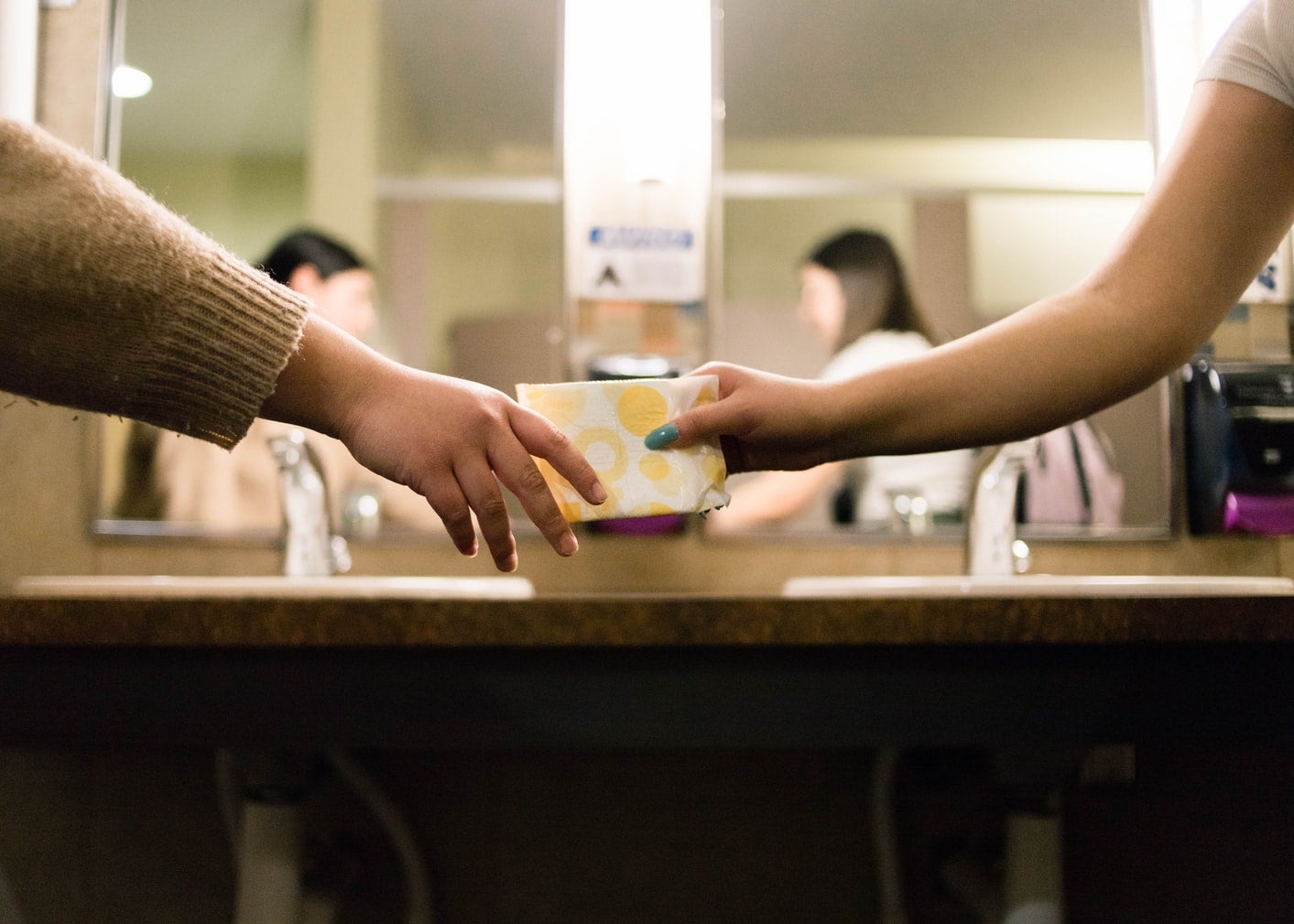We people who menstruate have all been there. You’re out in public when suddenly you start your period. You feel that flush of embarrassment that someone around you will somehow notice that this monthly process has begun. You look to your friends with a wide-eyed stare, the ultimate girl code for “do you have a pad/tampon?”; even though it’s just the two of you there, your friends still slide the menstrual product to you in the most inconspicuous way possible. You hide the product in your sleeve or perhaps in a pocket and hurry off to the nearest possible washroom.
Even though we live in 2022 and media coverage of women’s sexuality, health, and empowerment are at a supposed all-time high, we’re still hiding and repressing the reality that many people menstruate, which is entirely normal! This conflicting phenomenon got me curious about where this stigma originated and why we continue to follow it despite significant advances in women’s health.
Why DO WE HAVE Menstrual Taboos?
While views of menstruation vary between cultures, research suggests that menstruation arguably falls into Goffman’s stigma theory. Goffman was a sociologist who, in 1963, created three categories of stigma. These include abominations of the body, blemishes of the individual character, and tribal/cultural markers. Throughout history, menstruation has fallen into all three of these categories. For example, menstruation has often been described as “unhygienic” and period blood is considered aversive compared to other bodily fluids. It’s so commonly viewed as aversive that we don’t even use a red liquid for menstrual advertising products; instead, we opt for blue.
In terms of blemishes of the individual, this category represents how publicizing menstruation may taint an individual’s image to their peers. A typical example is our fear of “leaking” through clothing.
Finally, from the tribal perspective, menstruation is often associated with females and femininity. Research suggests that behaviour towards females pre- and post-menstruation changes dramatically, including greater accounts of being told to act “ladylike” or more “mature” than previously. After comparing menstruation with Goffman’s stigma, it’s evident how menstruation is still a taboo in our world today. Even though we discuss periods on a widespread (and perhaps superficial) level regarding the individual experience of menstruation, we continue to fear being stigmatized for this condition.
Normalizing PERIODS
So, what can we do to help dismantle the stigma surrounding menstruation? Unfortunately, there’s not one simple answer, but I’ve curated some recommendations of ways we can start!
- DISCUSS PEriods openly!
-
While it may seem intimidating, openly discussing our periods is one of the simplest ways of dismantling the stigma surrounding menstruation. The more we talk about our periods truthfully, honestly, and publicly, the more normalized the discussion will become!
- TRY OUT new period products
-
Often, those of us who menstruate are confined to using pads and tampons. While these are great options, most of us are unaware of the range of period products out there: diva cups, menstrual disks, reusable pads, and even menstrual underwear. Moreover, many unconventional products are more environmentally friendly than disposable pads and tampons! By educating and creating space for discussion of a wide range of period products, we can begin normalizing not only periods but also the products associated with them.
- Recognize the impact of PEriods on Women GLOBAlly
-
Another way to not only lessen your stigma with periods but also to gain global knowledge is to look at how period stigma affects us and the world. Keeping up with current events and openly discussing these with your peers is another method of combatting the stigma surrounding period and reproductive women. Some topics may include the overturning of Roe v. Wade in the United States, menstrual huts in eastern Asia, or the current period product shortage!

While these suggestions are only a start, I hope this conversation has allowed you to expand your thoughts surrounding periods and period stigma. Maybe next time we’re on our periods, we will walk to the washroom with that tampon, proud as can be!



